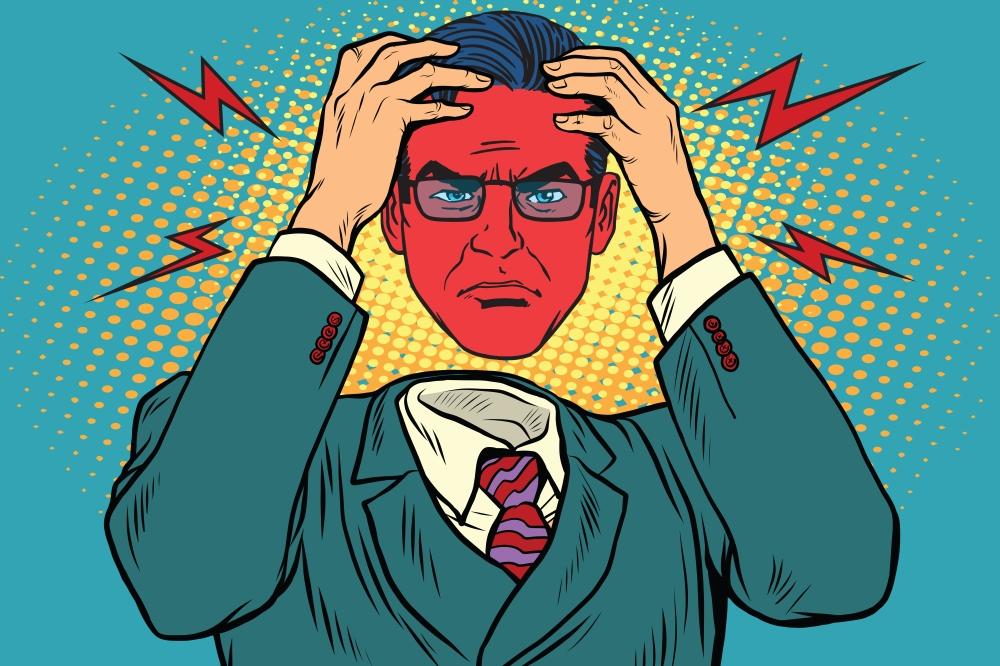Treating Anger Management
 Anger management problems can be destructive to your health, career, and relationships. Rage can overwhelm you and lead to violence, depression, and suicidal tendencies. Unpredictable behavior and frenzied outbursts can also put your colleagues, friends, and family members at risk.
Anger management problems can be destructive to your health, career, and relationships. Rage can overwhelm you and lead to violence, depression, and suicidal tendencies. Unpredictable behavior and frenzied outbursts can also put your colleagues, friends, and family members at risk.
If you have problems with uncontrollable anger, it's essential that you find support to learn strategies to manage it. Options include outpatient and inpatient programs with mental health professionals. Modern facilities offer highly targeted and effective treatment that achieve good results in as little as eight weeks.
Irrepressible anger is a symptom of a deep-seated emotional problem. Inability to manage results in erratic behavior. Numerous issues arise because you abandon rationality when you're overcome by rage. Problems resulting from anger-related erratic behavior include addictions, abuse, violence, and problems with the law.
People suffering from anger issues often believe their feelings are inappropriate, so they try to suppress their anger. Dealing with their anger this way leads to health problems and stormy emotional outbursts.
Treating anger problems
It's not possible to eliminate anger, and that's not the solution because it's a typical emotional response that healthy people have to specific situations. Problems arise when anger becomes uncontrollable and destructive.
The right approach to treating anger issues is managing the intensity of the emotion and how it affects you. Various therapeutic strategies are available to help your anger appropriately. With these strategies, you can even learn how to tolerate people and situations that are out of your control.
Therapeutic strategies for anger management include the following.
- Cognitive behavioral therapy
- Improvement of problem-solving skills
- Improvement of communication skills
- Avoiding situations that are unnecessarily problematic
- Self-deprecation and humor
You can teach yourself how to manage your anger. However, working with a qualified and experienced mental health professional improves your chances of success.
Treating anger disorders with cognitive behavioral therapy
Cognitive behavioral therapy is among the most common forms of psychotherapy. This type of treatment helps you recognize negative and self-defeating thought patterns that lead to angry outbursts. The mental health professional teaches you how to respond appropriately to stressful circumstances.
The benefits of treating anger disorder with cognitive behavioral therapy include learning how to:
- Resolve relationship conflicts positively
- Cope with life's difficulties effectively
- Manage emotional distress from physical trauma, abuse, and illness
- Handle grief effectively
- Overcome physical symptoms such as fatigue and chronic pain
Compared to other structured therapies, cognitive behavioral therapy offers the quickest results.
Moreover, this therapy provides lasting results with low rates of relapse. It focuses on personal triggers and helps a patient learn anger management steps including:
- Identifying stressful, triggering situations
- Developing awareness of your thoughts and emotional states
- Acknowledging negative, unhealthy thought patterns
- Learning how to adopt positive, healthy thought patterns
In addition to being highly beneficial, cognitive behavioral therapy has few risks. Even though you will explore painful emotions, it happens in a safe, controlled environment.
This short-term therapeutic approach takes 10-20 sessions depending on your disorder, its severity, the rate of progress, stress levels, and the nature of your support system. For this and other treatments for anger disorder, contact qualified psychiatric service providers.
